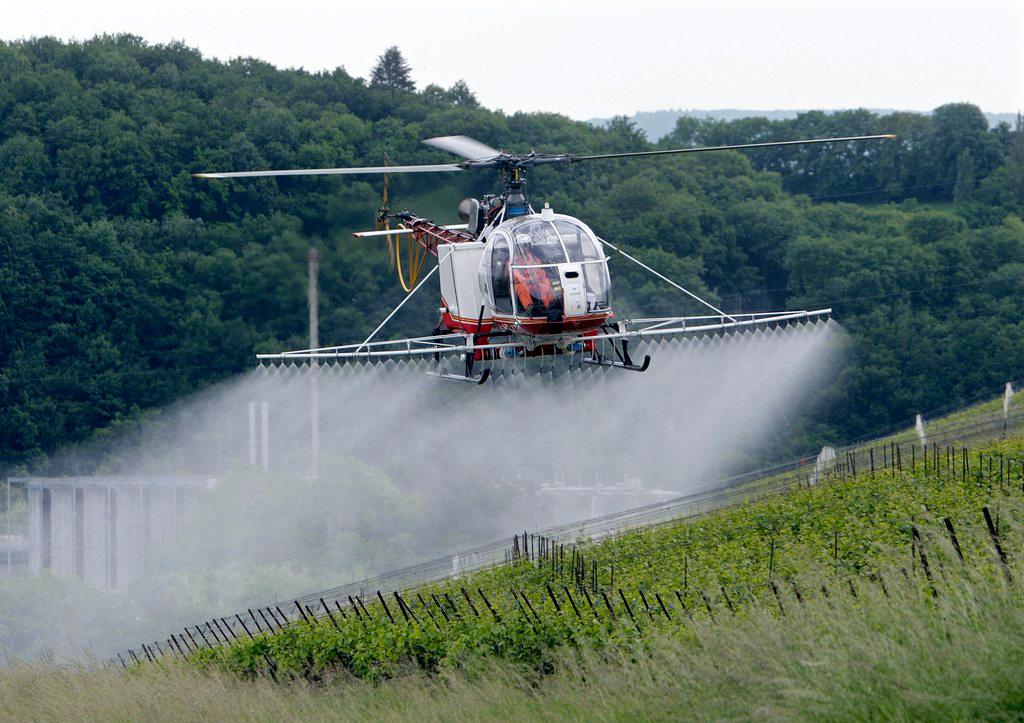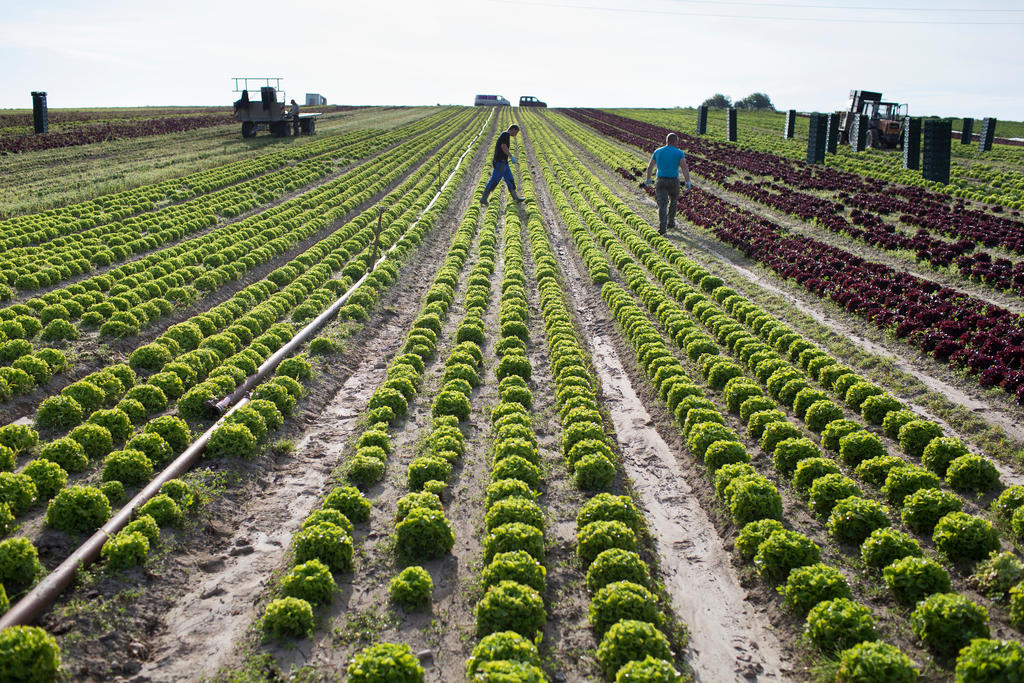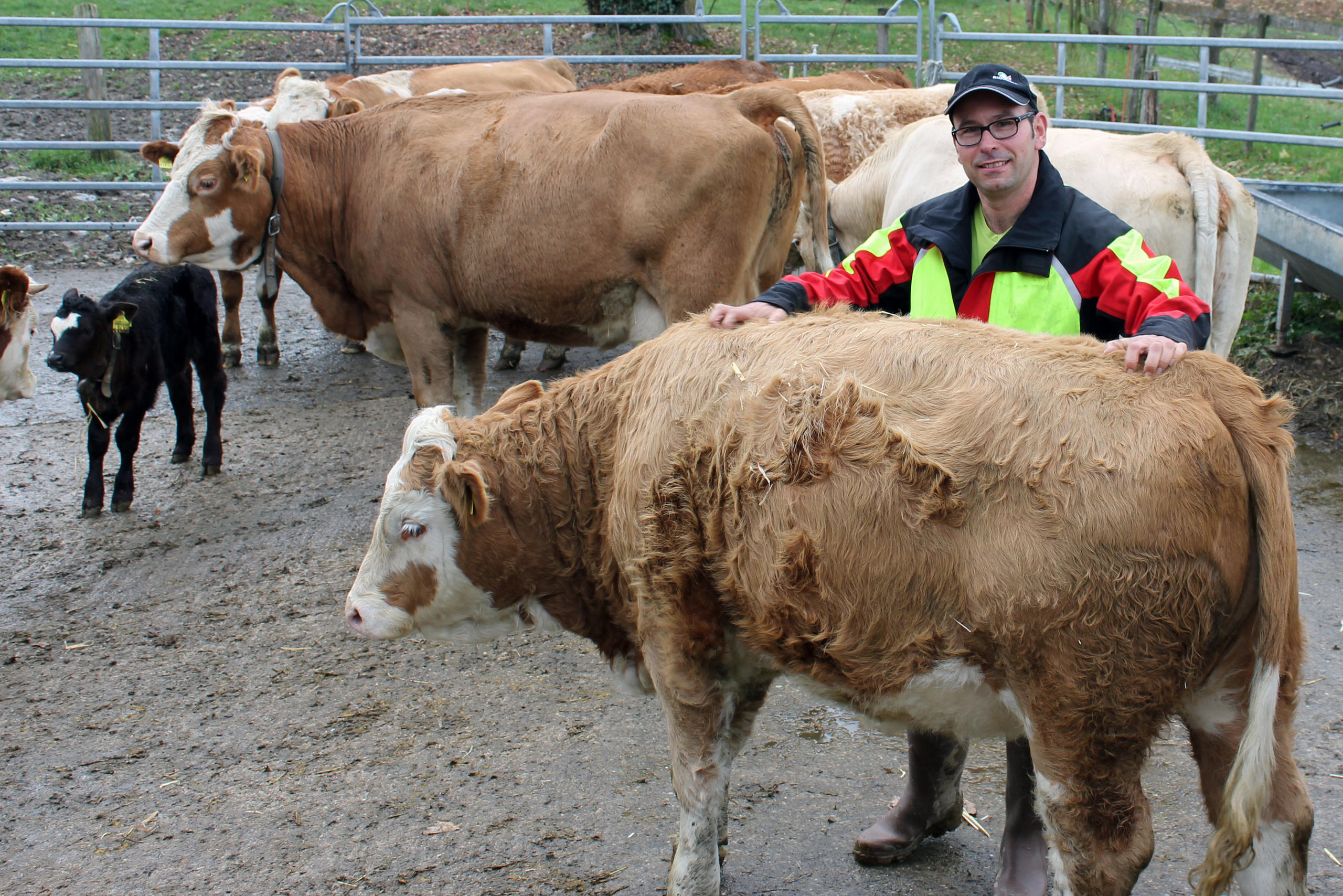Will Switzerland get rid of pesticides?

In 2005, Swiss voters decided to ban the use of genetically modified organisms (GMOs) in the country’s farming industry. A group of citizens now wants to go even further by banning the use of synthetic pesticides throughout Switzerland. The initiative has already faced a great deal of resistance from the agricultural and industrial sectors.
“They may have their billions but we have eight million consumers and citizens on our side,” says a determined Etienne Kuhn. The forty-something sales and marketing account manager is behind the people’s initiative, which was officially launched last November.
Unperturbed by the major lobbying coming from the agrochemical industry, which is represented in Switzerland by Basel-based mega corporation Syngenta, Kuhn is convinced that his cause will strike a chord with the Swiss people.
“We need all of five seconds to convince people in the street to sign our initiative. There’s a general feeling of discontentment surrounding pesticides so the time has come to let the people speak up about this crucial issue,” he says.
Kuhn has become personally involved in this matter over the last five years, especially during his many business trips as manager of a multinational information technology company.
“At the beginning, I got interested in this issue from reading articles, just like everyone else. Then I began to meet farmers, biologists, politicians, paediatricians and even neurologists. I was shocked to learn that governments weren’t doing anything about the real danger these products pose, even though economically viable alternatives are already available,” he says.
Winegrower and mechanic
Convinced that only a civic action could put an end to this political deadlock, Kuhn became determined to change the Swiss constitution.
The issue of pesticides will be central to the Swiss political agenda in the coming years.
Running alongside the Neuchâtel initiative is another proposal initiative launched in German-speaking Switzerland by the organisation “Clean water for everyone”External link in March this year.
The latter calls for a system where only farmers whose production does not rely on the use of agrochemical products or prophylactic antibiotics continue to receive government funding in future.
The campaigners have until the end of May 2018 and September 2018 respectively to gather the at least 100,000 signatures needed to bring the issue to a nationwide vote.
His initiative, which is written in simple terms that opponents have criticised for being simplistic, calls for a total nationwide ban on using and importing synthetic pesticides.
The action is being brought by Swiss citizens who, like Kuhn – who considers himself to be a “pragmatic” person – are all apolitical and come from different backgrounds and professions.
The initiative’s committeeExternal link members include a winegrower, a biology professor, a business owner and even a mechanic.
What do they have in common? They live in the French-speaking canton of Neuchâtel in western Switzerland and are all staunch defenders of biological, sustainable farming.
200,000 deaths a year
“We aren’t a group of extremist eco-warriors, we’re just a bunch of people who’re concerned about our health and our children’s health who’ve been brought together by this project,” says committee member Laurent Berset, who works at the Federal Office of Topography.
His group is surfing a wave of global mistrust towards pesticides.

More
Swiss urge farmers to use fewer pesticides
In particular, they can draw on a reportExternal link which was presented in Geneva at the United Nations Human Rights Council and paints a damning picture of the catastrophic effects that the use of crop protection products can cause to the environment and our health and society.
The study states that pesticides are responsible for around 200,000 deaths a year around the world, most of which occur in developing countries. However, UN experts are now convinced that it would be possible to feed nine billion people without using synthetic pesticides.
Can Switzerland lead by example?
“Switzerland has an extremely good chance to use its direct democratic system to set an example for the rest of the world and act as a pioneer by banning these toxic products which belong to a bygone agricultural era,” Berset is convinced.
Similarly to the initiative on unconditional basic income in June 2016 which was rejected by almost 80% of voters, surely these idealistic aims are bound to get a frosty reception at the ballot box? Don’t be so sure.
In fact, history suggests that Swiss people demonstrate a certain sensitivity when it comes to deciding what ends up on the dinner table. In 2005, they voted for a five-year moratorium on the use of GMOs in Switzerland, which the Swiss parliament has since extended three times by popular demand.
Opposition ready to fight
Despite their enthusiasm fuelled by a “crazy desire to break the current system”, the members of the initiative will have to face some big opponents.
These include the majority of politicians and the agricultural industry as well as agrochemical businesses with nearly $50 billion (CHF48.7 million) in annual sales worldwide.
“This radical proposal could lead to production in Switzerland falling by 20 to 30%, weaken the country’s food security and increase its dependence on other countries,” criticises Jacques Bourgeois, parliamentarian for the centre-right Radical Party member and director of the Swiss Farmer’s AssociationExternal link.
Another opponent who has not waited for the at least 100,000 signatures to be officially handed in to the authorities is ScienceindustriesExternal link, the umbrella organisation for Swiss chemical, pharmaceutical and biotechnical industries.
“A production-driven farming industry cannot do without crop protection products. Farming without using this means of protecting plants would mean a considerable drop in the amount of farmed produce in Switzerland,” says Anna Bozzi, head of Agriculture and Nutrition at Scienceindustries.
Bozzi also denounces a total ban that does not follow a scientific approach to the issue.
“It’s practically impossible to organise crop protection products into two distinct categories of ‘chemical-synthetic’ and ‘non-chemical-synthetic’. Authorised biological pesticides on the market are partially made up of chemical compounds which are produced using modern industrial processes,” she explains.
Invalid initiative?
Scienceindustries, the famers association and others opposing the initiative are also planning another angle of attack. They believe this initiative is invalid because it is incompatible with the treaties and international trade agreements that Switzerland has signed.
Kuhn dismisses the criticism. “We didn’t compose the proposal lightly and, to my knowledge, Switzerland is still a sovereign state.”
Furthermore, the initiative envisages a period of ten years for the requested changes to be put into effect, which will allow farmers to adapt to this new sustainable production method gradually, a step which thousands of Swiss farmers have already made in a much shorter time frame, according to Kuhn.
Last year, the government launched an action plan last year aimed at reducing the risks associated with agrochemical products by a half in the next decade.
“The collection of signatures is not over, so the government has not issued a statement on its position yet. The Federal Office for Agriculture is therefore neither for, nor against [the initiative],” says spokeswoman Florie Marion.
Translated from French

In compliance with the JTI standards
More: SWI swissinfo.ch certified by the Journalism Trust Initiative
















You can find an overview of ongoing debates with our journalists here . Please join us!
If you want to start a conversation about a topic raised in this article or want to report factual errors, email us at english@swissinfo.ch.